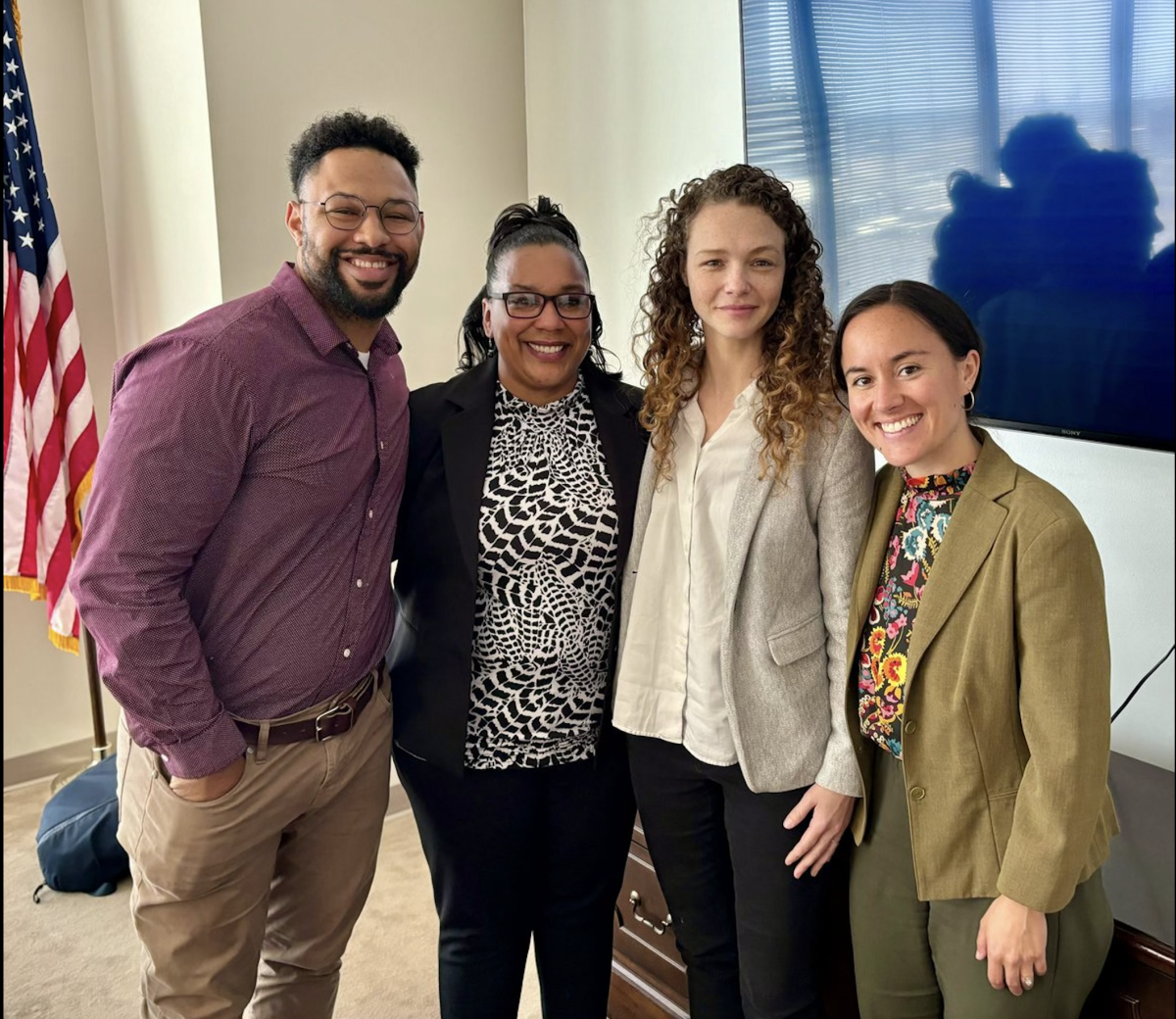Deidre Thomas entered prison pregnant, suicidal and poisoned by years of trauma. Through love and education, she made her way out and is now a paralegal.
Mental illness from a young age exacerbated by several toxic relationships landed Thomas in prison early in her adult life. But empowered by the love of fellow inmates and the education provided to them, she quickly transitioned from 25 years of prison to working as a paralegal with the Promise for Justice Initiative, a New Orleans-based legal organization.
PJI believes in the rights of people with convictions and the importance of healing and prison reform, values that are at odds with recent state anti-crime legislation backed by Louisiana Gov. Jeff Landry.
Born in 1974, Thomas was one of four girls on a Louisiana farm. Her family had complicated relationships, characterized by imposed limitations on any kind of social life. Confrontations were frequent, both verbal and physical.
Isolation and conflict heavy relationships led Thomas to cutting herself at the age of 13.
“I just pretty much shut up, but even though my mouth was closed, there was so much going on on the inside,” Thomas said. “It was almost like there was another person in there screaming to get out.”
After leaving home at 17, Thomas’ mental illness persisted. She had her first child before being hospitalized for suicidal ideation and depression. She lost 30 pounds in two weeks around this time. Following an abortion, Thomas discovered her third pregnancy at 23, just before her arrest. A conflict with the father of her child escalated and resulted in her conviction for attempted murder and second-degree murder.
“She looked like a crazed woman,” her sister Tristin said. “They shaved half her hair; she had been crying and had makeup smeared across her face. She did not look like my sister.”
The severity of her depression on top of expecting a baby climaxed a vague but debilitating darkness while at East Feliciana Parish Jail.
“It was another resident that came and started hand feeding me, telling me about a baby,” Thomas said. “Some days I knew I was pregnant, some days I didn’t.”
After being moved to Louisiana Correctional Institute for Women, Thomas joined a program called Kairos, an interdenominational program to support inmates.
“For these people to embrace me from the time I walked through the door, and keep in contact after that, even after I was released,” Thomas said through tears, “for me that was the major point. Knowing that I’m loved, that I was somebody.”
The group would sing together, eat together and share together. The highlight of the program was called “prayer and share”. Inmates broke into small groups for an hour and a half, following prompts that guided a sharing process. Prompts like, ‘Did you have a time when it was tough to love another person?’. The program established an environment of support, forgiveness and the freedom to release emotionally.
“There was a breaking in me,” Thomas said. “These people didn’t know me, didn’t know why I was incarcerated, didn’t care. They just loved on me, hugged on me.”
A study of 505 inmates found regular Kairos members to have a recidivism rate of 10%, the non-Kairos control group had a recidivism rate of 23.4%.
During her time, Thomas would visit her son for as many as eight hours at a time.
“There was something that my son said,” Thomas recalls. “He told me ‘Mama, if I go to the men’s prison next door can I see you more?’ That crushed me.”
Thomas’ son failed fifth grade twice and her concern for his future grew. So, she made him a deal. If he was in school, she was in school.
Access to education introduced her to law; the ability to influence change made her fall in love with it.
“I think the things that started helping her realize who she was and what she was capable of is when she started winning things in the court through her job as a council sub,” said Stephanie King, a fellow Kairos member.
Yet, Thomas didn’t need a law book to recognize the injustices around her. Due to lack of public knowledge and strategic avoidance of auditors, the prison fell significantly short of standards.
“If you didn’t help them cover it up, you would get some type of repercussion,” Thomas said. “Out of fear, you did what your captor told you.”
Thomas recalls having to walk through sewage, use buckets for leaks, and go months without a kitchen ceiling and a constantly failing air conditioning system. Inmates did not make more than a dollar an hour for their labor, yet were expected to pay up to $12 for feminine hygiene products. The infirmary wasn’t free either; Thomas recalls inmates coming out still bleeding from the ears and eyes. These kinds of conditions regularly cost lives.
“It was like seeing a bunch of animals in a bullpen, and waiting to be slaughtered,” Thomas said. “You could be somewhere, and someone would just drop dead.”
After a quarter century confined to this reality, years of education positioned Thomas to become a paralegal following her release on Nov. 1, 2023.
She walked out to her family, dropped her things and hugged her mom with the love of two and a half decades apart. Tears running down her face, she repeated “I’m so sorry, I love you so much.”
Thomas didn’t see her father until Thanksgiving. He was in complete shock, unsure if she was allowed to be there. She embraced him tightly before the weight of their tears pulled them to the floor.
Today, at 49, Thomas works full time in New Orleans. Her perspective informs the mission of PJI in opposing legislation she knows works against inmate reform.
“Do you realize that when you take away peoples hope and their incentive to do right, you’re going to get a hot mess?” King said.
Thomas has changed the lives of women with stories like hers while both in and out of prison.
“How did I lose so much at such a young age?” she said. “I don’t want anybody to have to go through the path I’ve gone through.”
Some of Thomas’ achievements include helping a single mother retain custody of her child while negotiating her sentencing to a house arrest, and preventing an inmate from overstaying her term by seven years after catching an unprocessed audit.
“When she got in, I saw a weak, frail, lost woman, that didn’t know how to express herself to get help,” Tristin said. “Now I see a fricking powerhouse. The girl has a thing for law.”
Thomas entered her 25-year sentence pregnant and with every intention to end her life. The unconditional love of other inmates and the empowerment she felt making a difference with law reconstructed her life and self-belief. Once deemed unfit for society, Thomas now works every day to better it.
“Reform is possible, rehabilitation is possible, change is possible,” King said. “But you have to give somebody the opportunity to find it.”







